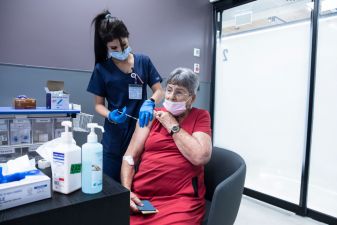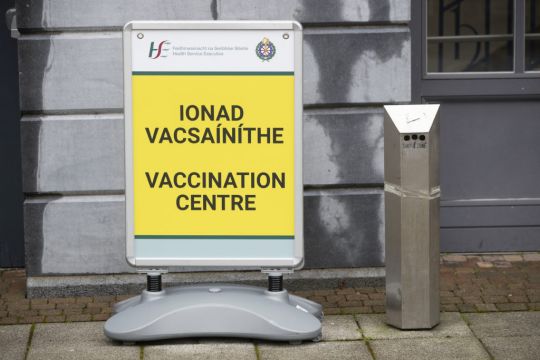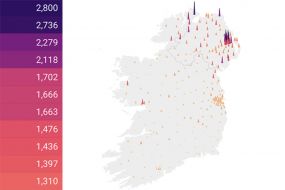The first of the Republic’s walk-in vaccination centres opened to the public on Friday morning, with more set to deliver jabs over the bank holiday weekend.
Clinics are open to anyone aged 16 and over who has yet to receive a first dose, with the first walk-in clinic opening at the Clonguish GAA Club in Co Longford at 8am on Friday.
The Midlands Park Hotel in Co Laois opened at 9am on Friday for walk-in vaccinations, as did the Clonmel Park Hotel in Tipperary.
More vaccination centres will welcome walk-ins over the course of the weekend and anyone attending will receive the first dose of the Pfizer jab.
Walk-in vaccination clinics will be available at some vaccination centres this weekend. People aged 16 or older can attend. These clinics are for your first dose only. You do not need to be registered or have an appointment. ➡ https://t.co/ofWj13Prq0#VaccinesSaveLives #ForUsAll pic.twitter.com/IhyQAVdXLi
Advertisement— HSE Ireland (@HSELive) July 30, 2021
Damien McCallion, the HSE’s national director and lead for the vaccination programme, said the “rationale” for the centres is that “as we move towards the end of this stage of the programme we’re conscious that we want to try and maximise the number of people and give people the maximum opportunity to get vaccinated”.
Most clinics will open for walk-ins on Saturday, Mr McCallion told RTÉ radio.
“We’re conscious that we’re in the holiday season, so people from one part of the country, for example Dublin, may be holidaying in Clare or Kerry or wherever, can turn up in those centres where they’re holidaying,” he said.
Anyone arriving at a walk-in centre will need to take photo ID, and anyone aged 16 and 17 can take a copy of their birth certificate.
Mr McCallion said 16- and 17-year-olds do not need parental consent to receive the vaccine.
He said he expects children aged between 12 and 16 to be offered a vaccination in August.
With incidence of #COVID19 continuing to rise in Ireland, it is important that people understand the level of risk in their local area. The 5 counties with the highest 14 day incidence are now Donegal (954/100,000), Louth (633/), Galway (516/), Laois (496/) and Monaghan (443/). pic.twitter.com/wsHs5YdBXq
— Dr Ronan Glynn (@ronan_glynn) July 30, 2021
Advertisement
On Friday morning, the deputy chief medical officer, Dr Ronan Glynn, warned that people need to “understand the level of risk in their local area”.
Donegal, Louth and Galway are among the counties with the highest 14-day incidence rate.
Almost one in every 35 people in Carndonagh, Co Donegal had coronavirus over the last two weeks, according to the latest official figures.
The most northerly local electoral area in Ireland has the highest rate of Covid-19 on the island with an incidence rate of 2,800 infections per 100,000 people.
Other electoral areas in Co Donegal with high incidence include Buncrana (1,476 cases per 100,000) and Donegal town (955).
On Thursday, Taoiseach Micheál Martin said the Government will take a “steady as she goes” approach to Covid-19 restrictions in the coming weeks.
Warning about the risk that the Delta variant of the virus still poses to Ireland, he indicated that caution is still needed despite strong progress in vaccination the country’s population.
More than 5.7 million vaccines have been administered, with 80 per cent of adults partially vaccinated and 71 per cent of adults now fully vaccinated.
Health Service Executive (HSE) chief Paul Reid warned on Friday that, while the general outlook is positive, hospitals are still under pressure from a rising number of hospital admissions linked to Covid infections.
“We’re not out of the woods in terms of the trend of hospitalisations,” he told RTÉ.

He added that, regardless of whether a patient is admitted to hospital due to a Covid-19 infection, or tests positive for the virus after being admitted for a different reason, each case has a significant impact on the health service.
“Regardless of what number it is, every Covid positive patient has a disproportionate effect on our hospital system.”







